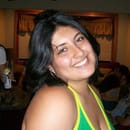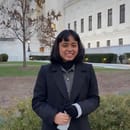On the weekend of October 20-22, 2023, Seeds of Fortune held an event on- and off-campus at Columbia University and Barnard College for BIPOC high school students applying to college. Seeds of Fortune, also just known as ‘Seeds,’ is an online platform that helps marginalized and traditionally underrepresented students in high school prepare for college by helping them apply for scholarships, build financial skills like saving and budgeting, and career opportunities like externships. Seeds was founded by Nitiya Walker, who writes on the Seeds website that she, “believed it was my duty to help ease the financial burdens of those in my generation; so I created a scholarship program to help teen girls obtain local and national scholarships.”
Over 100 high schoolers attended the event as part of Seeds’ 6-month College Prep Leadership Program. The event featured various opportunities including meeting admissions officers, university student panels, and a private networking dinner. The Her Campus Columbia/Barnard team was invited to sit in on panels featuring students from both Barnard College and Columbia University who were connected with Seeds of Fortune, either since high school or upon entering college. We were then able to interview those students about how their experiences with Seeds of Fortune have impacted their time at Barnard and Columbia, and about the importance of programs that meet the needs of underserved students who are pursuing higher education.
Below is our interview with Jeanette (she/her) and Mariam (she/her), students at Barnard College. Jeanette is a junior majoring in Neuroscience and Human Rights, and Mariam is a junior majoring in Political Science and Religion with a minor in Education studies.
Read our interview with Seeds’ students at Columbia University here.
Her Campus: Could you talk about your relationship with Seeds of Fortune?
Jeanette: I joined Seeds of Fortune when I was a junior in high school, and I’ve stayed with the program. Now I am a Seeds University Scholar!
Mariam: I joined in 10th grade going into my junior year (if I recall correctly) and I’ve been with them since, seeing the transitions as well as how they develop as the years go on.
HC: What’s a skill that you learned or developed at Seeds of Fortune or being part of like a university program that you found to be important as a student at Columbia/Barnard?
M: The ability to say yes to everything, explore options, and never take any opportunity for granted. Being at Barnard, there’s a lot of things that I’ve done or said “Yes… let me go and sign up for it.” I feel like Seeds really pushed me — I did two internships at a bank and my major has nothing to do with finance nor banking, but I said, “Yes,” and was willing to learn. So the aspects of being able to want to learn and want to explore different things have really helped me on this campus. I would say Seeds [of Fortune] really, really helped instill the value of saying yes.
HC: What do you see as the importance of a program that is targeted towards underrepresented students? Do you see similar communities at Columbia or Barnard?
J: The importance of Seeds is just the fact that they expose us to the college admissions process. As a first generation student, I did not know what FAFSA or Common App were… I did not know any of those terms. And I think that having that summer intensive program leading into my senior year was extremely helpful, because it’s not a conversation I would have had at home, and I don’t know what my college admissions process would have looked like if I had not been a part of Seeds. And I think the most similar resource on Barnard’s campus is Access Barnard. I think they help a lot with just navigating what life is like being first gen low income and offering us similar resources that we need to be successful; whether that be textbook orders, [having] each other as peer mentors, [and] also having a different set of advisors compared to the general student body being that we are opportunity scholars here.
Mariam: Yeah, I can agree with Jeanette. My high school did help with the process, but doing the sessions with Seeds of Fortune and having them go through the many different things that we’ll deal with when applying to college was really helpful. I was able to rely on them more than my high school because there’s a lot of times [when] there’s one counselor for like 50 students, so she wasn’t able to meet with all of us and give us the adequate amount of time to do what we needed. I had Seeds of Fortune to rely on and then they also helped me while I was in college with resources. Access Barnard really helped, as well as joining The Black Muslim Student Association — they really helped me find community. Also Beyond Barnard is definitely a really good [resource] because I was able to attend sessions. Handshake is a real good source for finding opportunities, going to informational sessions, and seeing what Barnard has to offer as well as outside institutions.
HC: How did your experience as a Seeds of Fortune scholar impact you in the transition from high school to college professionally and academically? And on that note, how is the transition from an all girls high school to a women’s college?
M: We did a lot of professional training and individuals that had a professional background came and talked to us. They made us work on a one-minute pitch that we had to go in-person to the office [for], and we literally had to go to each person, do the one minute pitch, and then like they would do it back to us. It would just be timed and like we basically had the ability to perfect what we were going to say and how we were going to conduct ourselves when talking to people. I am really, really grateful that I’m part of Seeds of Fortune because I know now what to say or what to not say and how I can conduct myself.
Also all-girls — it really wasn’t that big of a difference or shift because I feel like Barnard is a really great institution and I love everything that it offers, but my high school was mostly black and brown students. And it was just a building. So I really didn’t go into the community around us — I just talked to my peers and went to lunch and then just went home. Barnard gives us the ability to transition, talk to people, and just get access to resources. I don’t know the answer to the question, but ultimately, it was a good transition. I really didn’t notice the differences until I was able to realize I was not confined to just a building, rather than the whole campus and much more I have at Barnard.
J: I think that Seeds is really helpful in terms of professional development. Going in for my first year, I wasn’t using my resources adequately and so I turned to the resources that Seeds of Fortune gave me, which was, at that point, a career coach. She was extremely helpful with my resume building, prepping for interviews, writing a cover letter, and I think it was really helpful because I didn’t have to fight for an appointment at Beyond Barnard. I was able to use a resource that came from an organization that helped me to get where I’m at today.
I also went to a predominantly female high school, so the transition was really not that much of a transition. It was really nice to go from a student body that kind of reflected what I had in high school. I think the most stark difference was the fact that [Barnard] is a PWI, and most of the individuals at my high school were black and brown and also FGLI, and I think that many of the students here do not share that background. So that has definitely been really challenging to grapple with, but I think aside from that I think just having, in some sense, similar student bodies, has been helpful.
HC: Seeds of Fortune is obviously addressing educational inequalities and I was wondering, what can Barnard do, as an institution with more resources and a lot of money, to help that cause?
M: Barnard has the opportunity programs, such as HEOP, which is what we’re a part of, but they also have CSTEP which is for underrepresented minorities in STEM related fields. I also know they have the Pre-Orientation program. I feel like they have programs that they could definitely do more with.
J: I have my strong set of opinions. First of all, a lot of the introductory classes are not introductory. The professors assume that you have an AP or IB understanding of a lot of material and that’s just not fair because I did not have access, and I’m sure this is the case for many other students who did not have access to AP Bio or AP Chem. How can you expect that? I think that’s incredibly unfair.
My second opinion is that grading on a curve is absolutely ridiculous. [You’re] having students compete with one another in a particular course that assumes that you have an AP or IB understanding. Who is going to be the most successful? Who’s going to receive those A’s and who’s [going to] receive those C’s, D’s, and F’s? I just think that those discrepancies in the curriculum are completely awful and completely unfair. And I think that we could invest more resources into Access Barnard: our vouchers are only $25 for school supplies. Now, we get our own school supplies, but I feel like we need more money to provide the essentials that we need to be successful. It shouldn’t be based on applications, like “Hey, I need this. I need an Apple Pencil.” I should be able to just have the necessary funds to be successful.
HC: Is there anything more you wanted to add? Anything that we didn’t ask that you want to talk about in relation to Seeds of Fortune and Barnard?
J: Seeds has obviously served in predominantly first gen, low income, populations of color. I think to the Barnard community, just realizing that there are two or three of us in your classroom and just being aware of the fact that you hold certain privileges; knowing that sometimes verbalizing something like, “Oh, I already did this in high school,” referring to a lab assignment is kind of ignorant and hurtful to those of us who are like, “Well, we didn’t even have labs in high school.” So just taking that into account when you’re seeing or doing certain things in the classroom and being cognizant of the space you’re taking up, what you’re saying, and how that impacts other students, even if there are a few of us.
M: I completely agree. I feel like Seeds ultimately instilled the ability to advocate for yourself, but also to advocate for others that are coming after you. I feel like on this campus, Barnard does the same thing. But it’s like using my experience in Seeds as a marginalized individual to help those on my campus, but also those who come after me.




